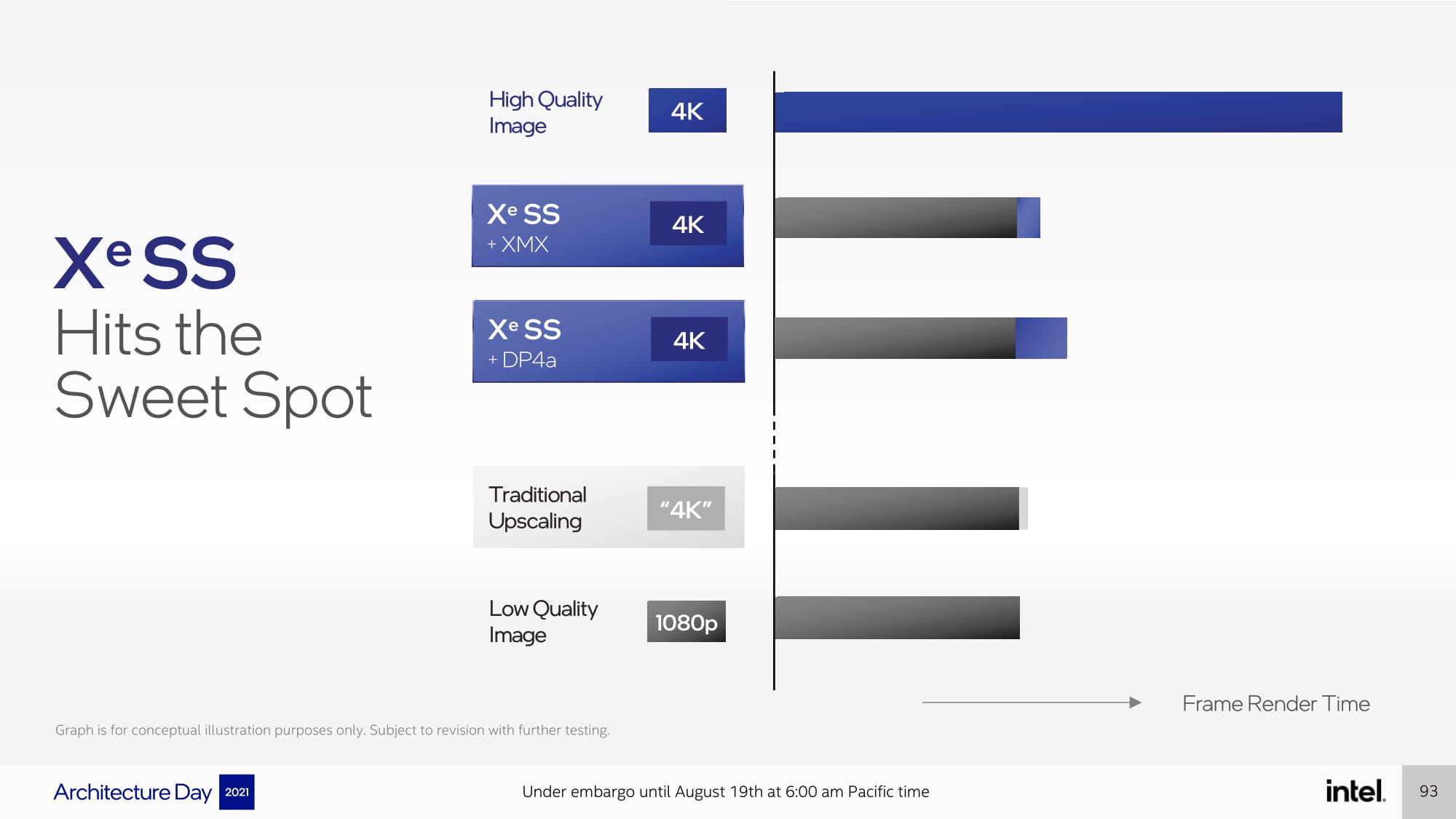FRIDAY, APRIL 25, 2025
- Home
- Intel announces XeSS as alternative to Nvidia's DLSS and AMD's FSR
Intel announces XeSS as alternative to Nvidia's DLSS and AMD's FSR
Published on Aug 20, 2021
By EMN
Share
Intel's XeSS claims to double your gaming performance.

Dimapur, August 19 (EMN): At Intel Architecture Day 2021, Intel announced its answer to Nvidia's DLSS and AMD's FSR, the Xe Super Sampling (XeSS).
Intel claims that its frame rate boosting technology will deliver upto 2x performance and will allow players to play at 4K (boosted from 1080p and low settings).
Intel's XeSS technology achieves this by using dedicated AI acceleration silicon (called XMX or Xe Matrix Extensions) built into the recently announced Alchemist GPUs.
Our customers have asked for a 1000X increase in compute power in the next 5 years. A one-size-fits-all architecture won’t cut it. See the design breakthroughs we unveiled at Architecture Day.
— Intel (@intel) August 19, 2021
Intel's Arc-based Alchemist graphics uses the Xe-HPG architecture and Intel says that its XeSS technology is based on dedicated AI acceleration hardware that was built into Xe-HPG.
Intel's XeSS technology is similar to Nvidia's DLSS, meaning, it uses deep learning to upscale lower quality images into high fidelity results. However, Intel's XeSS is open-source and can also work on competitors' graphics cards similar to AMD's FSR.
On its official blog, Intel wrote, "XeSS uses deep learning to synthesize images that are very close to the quality of native high-res rendering. This reconstruction is performed by a neural network trained to deliver high performance and great quality."
"We’re enabling XeSS on a broad set of hardware, including our competition," Intel said. "We accomplished this by using the DP4a instruction, which is available on a wide range of shipping hardware, including Iris Xe integrated and discrete graphics."
There might be slight performance dips for graphics cards without the necessary AI hardware, however, Intel's solution could pose a serious challenge to what Nvidia and AMD are currently offering. The upscale quality of Intel's XeSS solution in the video above is quite comparable, if not, better than Nvidia's DLSS and certainly miles ahead of AMD's FSR.
Intel is yet to launch its first gaming graphics card generation, Alchemist, and certainly has a lot of catching up to do. Time will only tell if Intel's XeSS solution will be the ultimate answer to DLSS and FSR. However, it can only mean good news to us gamers and the future certainly looks promising.

